Risk Sciences International
Understanding, Managing, and Communicating Risk™
Risk Sciences International (RSI) equips government entities, private corporations, and civil society organizations with evidence-based, experience-informed expertise to navigate complex risk landscapes. Our experts’ work spans from evaluating the health effects of a single chemical to prioritizing diverse organizational risks, advising on emerging threats, and supporting coordinated responses to global-scale challenges.
Our team understands that high-stakes decisions – those affecting health, safety, operations, reputation, or social outcomes – are rarely straightforward. Public safety, consumer protection, or conservation-of-nature goals may compete with economic pressures; regulatory requirements may diverge from operational feasibility. RSI approaches these complex trade-offs impartially. We acknowledge the necessity of – and work to satisfy – regulations, while simultaneously recognizing and supporting industry’s growing commitment to credible, self-driven safety and transparency initiatives. Our experts – including leading scientists, experienced engineers, and seasoned global policy advisors – pair rigorous analyses with practical, actionable recommendations. We also leverage advanced analytics, develop software tools, and construct scenarios and solutions to help clients anticipate and prepare for future regulatory shifts and crises.
At RSI, we approach risk as both a hazard and an opportunity. Our approach to understanding, managing, and communicating risk emphasizes not only addressing potential harm but also uncovering strategic advantages that can enhance resilience, innovation, or competitiveness.
RSI supports risk, safety, and regulatory teams across private, public, and civil society sectors. We deliver scientifically rigorous analyses, develop practical tools and training, and produce perception-informed messaging grounded in science and data, supported by production services. In short, we help our clients understand, manage, and communicate risk. Our experience includes collaborations with federal and provincial regulators across North America, Europe, Asia, Australia, and emerging markets; UN agencies and multilateral organizations; global civil society groups; industry associations; and leading corporations in technology, food, transportation, pharmaceuticals, minerals, refining, and other sectors. In every engagement – whether routine or marked by uncertainty – all RSI staff members and associate experts remain steadfastly committed to providing clear insights, credible solutions, and effective messaging.
Languages note: RSI staff are multilingual. All languages listed above have at least one staff member who is a native speaker in that language.
Risk Sciences International (RSI) dote les entités gouvernementales, les entreprises privées et les organisations de la société civile d’une expertise fondée sur des données probantes et enrichie par l’expérience, afin de les aider à naviguer dans des environnements de risque complexes. Le travail de nos experts s’étend de l’évaluation des effets sanitaires d’un seul produit chimique à la hiérarchisation des risques organisationnels divers, en passant par le conseil sur les menaces émergentes et le soutien à des réponses coordonnées face à des défis d’envergure mondiale.
Notre équipe sait que les décisions à forts enjeux – celles qui touchent la santé, la sécurité, les opérations, la réputation ou les résultats sociaux – sont rarement simples. Les objectifs de sécurité publique, de protection des consommateurs ou de préservation de la nature peuvent entrer en concurrence avec des pressions économiques ; les exigences réglementaires peuvent diverger de la faisabilité opérationnelle. RSI aborde ces arbitrages complexes avec impartialité. Nous reconnaissons la nécessité de respecter les réglementations – et travaillons à leur mise en œuvre – tout en tenant compte et en soutenant l’engagement croissant de l’industrie en faveur d’initiatives crédibles et volontaires en matière de sécurité et de transparence. Nos experts – parmi lesquels des scientifiques de premier plan, des ingénieurs chevronnés et des conseillers expérimentés en politiques internationales – associent analyses rigoureuses et recommandations pratiques et applicables. Nous exploitons également des outils analytiques avancés, développons des solutions logicielles et concevons des scénarios pour aider nos clients à anticiper et à se préparer aux futures évolutions réglementaires et aux crises.
Chez RSI, nous considérons le risque à la fois comme une menace et comme une opportunité. Notre approche de la compréhension, de la gestion et de la communication du risque vise non seulement à réduire les dommages potentiels, mais aussi à révéler des avantages stratégiques qui renforcent la résilience, l’innovation ou la compétitivité.
RSI accompagne les équipes responsables du risque, de la sécurité et de la réglementation dans les secteurs privé, public et de la société civile. Nous fournissons des analyses scientifiques rigoureuses, développons des outils et des formations pratiques, et produisons des messages éclairés par la perception, fondés sur la science et les données, et appuyés par des services de production. En bref, nous aidons nos clients à comprendre, gérer et communiquer le risque. Notre expérience couvre des collaborations avec les autorités fédérales et provinciales en Amérique du Nord, en Europe, en Asie, en Australie et dans les marchés émergents ; avec des agences des Nations Unies et des organisations multilatérales ; avec des groupes mondiaux de la société civile ; avec des associations industrielles ; et avec de grandes entreprises des secteurs de la technologie, de l’alimentation, du transport, de la pharmacie, des minerais, du raffinage et d’autres industries. Dans chaque mission – qu’elle soit routinière ou marquée par l’incertitude – l’ensemble du personnel et des experts associés de RSI demeure fermement engagé à fournir des analyses claires, des solutions crédibles et des messages efficaces.
Veuillez noter que nous comptons des francophones au sein de RSI. Ceci dit, nous nous excusons si l’intégralité du site n’est pas disponible en français ; compte tenu de l’ampleur de l’information qu’il contient, cela n’est pas facilement réalisable. Si vous souhaitez obtenir de plus amples renseignements, n’hésitez pas à nous contacter.
Risk Sciences International (RSI) proporciona a entidades gubernamentales, empresas privadas y organizaciones de la sociedad civil una experiencia fundamentada en la evidencia y enriquecida por la práctica, para ayudarlas a desenvolverse en entornos de riesgo complejos. El trabajo de nuestros expertos abarca desde la evaluación de los efectos en la salud de un solo producto químico hasta la priorización de riesgos organizacionales diversos, la asesoría sobre amenazas emergentes y el apoyo a respuestas coordinadas frente a desafíos de escala global.
Nuestro equipo entiende que las decisiones de alto impacto – aquellas que afectan la salud, la seguridad, las operaciones, la reputación o los resultados sociales – rara vez son sencillas. Los objetivos de seguridad pública, protección al consumidor o conservación de la naturaleza pueden entrar en competencia con las presiones económicas; los requisitos regulatorios pueden divergir de la viabilidad operativa. RSI aborda estos complejos equilibrios de manera imparcial. Reconocemos la necesidad de cumplir con las regulaciones – y trabajamos para hacerlo – mientras, al mismo tiempo, reconocemos y apoyamos el creciente compromiso de la industria con iniciativas creíbles y voluntarias de seguridad y transparencia. Nuestros expertos – entre ellos científicos destacados, ingenieros experimentados y asesores globales de políticas con amplia trayectoria – combinan análisis rigurosos con recomendaciones prácticas y aplicables. También aprovechamos analítica avanzada, desarrollamos herramientas de software y construimos escenarios y soluciones que ayudan a nuestros clientes a anticipar y prepararse para futuros cambios regulatorios y crisis.
En RSI consideramos el riesgo tanto una amenaza como una oportunidad. Nuestro enfoque para comprender, gestionar y comunicar el riesgo enfatiza no solo la mitigación del daño potencial, sino también la identificación de ventajas estratégicas que pueden fortalecer la resiliencia, la innovación o la competitividad.
RSI respalda a los equipos de riesgo, seguridad y regulación en los sectores privado, público y de la sociedad civil. Entregamos análisis científicos rigurosos, desarrollamos herramientas y capacitaciones prácticas, y producimos mensajes informados por la percepción, basados en ciencia y datos, apoyados por servicios de producción. En pocas palabras, ayudamos a nuestros clientes a comprender, gestionar y comunicar el riesgo. Nuestra experiencia incluye colaboraciones con reguladores federales y provinciales en América del Norte, Europa, Asia, Australia y mercados emergentes; con agencias de la ONU y organizaciones multilaterales; con grupos de la sociedad civil global; con asociaciones industriales; y con corporaciones líderes en tecnología, alimentación, transporte, farmacéutica, minerales, refinación y otros sectores. En cada compromiso – ya sea rutinario o marcado por la incertidumbre – todos los miembros del personal de RSI y sus expertos asociados permanecen firmemente comprometidos a proporcionar análisis claros, soluciones creíbles y mensajes eficaces.
Tenga en cuenta que en RSI contamos con hispanohablantes. Dicho esto, le pedimos disculpas si el sitio completo no se encuentra en español; dada la magnitud de la información que contiene, no resulta fácilmente viable. Si desea más información, no dude en ponerse en contacto con nosotros.
Risk Sciences International (RSI) fornisce a enti governativi, aziende private e organizzazioni della società civile un’esperienza fondata su prove scientifiche e arricchita dall’esperienza pratica, per aiutarli a orientarsi in scenari di rischio complessi. Il lavoro dei nostri esperti spazia dalla valutazione degli effetti sulla salute di una singola sostanza chimica alla definizione delle priorità tra rischi organizzativi diversificati, fino alla consulenza su minacce emergenti e al sostegno a risposte coordinate di fronte a sfide di portata globale.
Il nostro team sa che le decisioni ad alto impatto – quelle che riguardano salute, sicurezza, operazioni, reputazione o risultati sociali – raramente sono semplici. Gli obiettivi di sicurezza pubblica, di tutela dei consumatori o di conservazione della natura possono entrare in conflitto con pressioni economiche; i requisiti normativi possono divergere dalla fattibilità operativa. RSI affronta questi complessi compromessi in modo imparziale. Riconosciamo la necessità di rispettare le normative – e lavoriamo per soddisfarle – ma al tempo stesso riconosciamo e sosteniamo l’impegno crescente dell’industria verso iniziative credibili e autonome di sicurezza e trasparenza. I nostri esperti – tra cui scienziati di primo piano, ingegneri esperti e consulenti globali di politica con lunga esperienza – combinano analisi rigorose con raccomandazioni pratiche e attuabili. Inoltre, utilizziamo analisi avanzate, sviluppiamo strumenti software e costruiamo scenari e soluzioni che aiutano i clienti ad anticipare e a prepararsi ai futuri cambiamenti normativi e alle crisi.
In RSI consideriamo il rischio sia come una minaccia sia come un’opportunità. Il nostro approccio alla comprensione, gestione e comunicazione del rischio non si limita ad affrontare i potenziali danni, ma mette in evidenza anche i vantaggi strategici che possono rafforzare la resilienza, l’innovazione o la competitività.
RSI supporta i team di rischio, sicurezza e regolamentazione nei settori privato, pubblico e della società civile. Forniamo analisi scientifiche rigorose, sviluppiamo strumenti e percorsi formativi pratici, e produciamo messaggi informati dalla percezione, basati su scienza e dati, con il supporto di servizi di produzione. In breve, aiutiamo i nostri clienti a comprendere, gestire e comunicare il rischio. La nostra esperienza include collaborazioni con enti regolatori federali e provinciali in Nord America, Europa, Asia, Australia e nei mercati emergenti; con agenzie delle Nazioni Unite e organizzazioni multilaterali; con gruppi della società civile internazionale; con associazioni di settore; e con aziende leader nei settori della tecnologia, dell’alimentazione, dei trasporti, della farmaceutica, dei minerali, della raffinazione e di altri comparti. In ogni incarico – ordinario o caratterizzato da incertezza – tutto il personale di RSI e i suoi esperti associati rimangono fermamente impegnati a fornire analisi chiare, soluzioni credibili e messaggi efficaci.
Si noti che in RSI abbiamo parlanti italiani. Detto ciò, ci scusiamo se l’intero sito non è disponibile in italiano; considerando la quantità di informazioni che contiene, non è facilmente realizzabile. Se desidera ulteriori informazioni, non esiti a contattarci.
Risk Sciences International (RSI) stellt staatlichen Einrichtungen, privaten Unternehmen und Organisationen der Zivilgesellschaft evidenzbasierte und erfahrungsgeleitete Expertise zur Verfügung, um sie bei der Navigation in komplexen Risikolandschaften zu unterstützen. Die Arbeit unserer Experten reicht von der Bewertung der gesundheitlichen Auswirkungen einer einzelnen Chemikalie über die Priorisierung vielfältiger organisatorischer Risiken bis hin zur Beratung bei neu auftretenden Bedrohungen und der Unterstützung koordinierter Reaktionen auf Herausforderungen im globalen Maßstab.
Unser Team versteht, dass Entscheidungen mit hohen Einsätzen – solche, die Gesundheit, Sicherheit, Betrieb, Reputation oder gesellschaftliche Ergebnisse betreffen – selten einfach sind. Ziele der öffentlichen Sicherheit, des Verbraucherschutzes oder des Naturschutzes können mit wirtschaftlichen Zwängen konkurrieren; regulatorische Anforderungen können von der betrieblichen Machbarkeit abweichen. RSI geht diese komplexen Abwägungen unparteiisch an. Wir erkennen die Notwendigkeit an, Vorschriften einzuhalten – und arbeiten daran, dies zu erfüllen – und unterstützen gleichzeitig das wachsende Engagement der Industrie für glaubwürdige, eigenverantwortliche Initiativen im Bereich Sicherheit und Transparenz. Unsere Experten – darunter führende Wissenschaftler, erfahrene Ingenieure und versierte internationale Politikberater – verbinden strenge Analysen mit praktischen, umsetzbaren Empfehlungen. Darüber hinaus nutzen wir fortschrittliche Analysen, entwickeln Software-Tools und entwerfen Szenarien und Lösungen, die unseren Kunden helfen, zukünftige regulatorische Veränderungen und Krisen vorherzusehen und sich darauf vorzubereiten.
Bei RSI betrachten wir Risiko sowohl als Gefahr als auch als Chance. Unser Ansatz zum Verständnis, Management und zur Kommunikation von Risiken zielt nicht nur auf die Bewältigung potenzieller Schäden ab, sondern auch auf die Identifizierung strategischer Vorteile, die Resilienz, Innovation oder Wettbewerbsfähigkeit stärken können.
RSI unterstützt Risiko-, Sicherheits- und Regulierungsteams in privaten, öffentlichen und zivilgesellschaftlichen Sektoren. Wir liefern wissenschaftlich fundierte Analysen, entwickeln praktische Werkzeuge und Schulungen und erstellen wahrnehmungsorientierte Botschaften, die auf Wissenschaft und Daten basieren und durch Produktionsdienstleistungen unterstützt werden. Kurz gesagt, wir helfen unseren Kunden, Risiken zu verstehen, zu managen und zu kommunizieren. Unsere Erfahrung umfasst die Zusammenarbeit mit Bundes- und Landesregulierungsbehörden in Nordamerika, Europa, Asien, Australien und auf Schwellenmärkten; mit UN-Organisationen und multilateralen Institutionen; mit globalen zivilgesellschaftlichen Gruppen; mit Branchenverbänden; sowie mit führenden Unternehmen in den Bereichen Technologie, Lebensmittel, Verkehr, Pharma, Mineralien, Raffinerie und anderen Sektoren. In jedem Auftrag – ob routinemäßig oder von Unsicherheit geprägt – bleiben alle RSI-Mitarbeiter und assoziierten Experten konsequent dem Ziel verpflichtet, klare Erkenntnisse, glaubwürdige Lösungen und wirksame Botschaften zu liefern.
Bitte beachten Sie, dass es bei RSI auch deutschsprachige Mitarbeiter gibt. Dennoch bitten wir um Entschuldigung, falls die gesamte Website nicht auf Deutsch verfügbar ist; angesichts der Menge an Informationen ist dies nicht leicht umsetzbar. Wenn Sie weitere Informationen wünschen, setzen Sie sich bitte mit uns in Verbindung.
Risk Sciences International (RSI) は、政府機関、民間企業、市民社会組織に対し、エビデンスに基づき実務経験に裏打ちされた専門知識を提供し、複雑なリスク環境を乗り越える支援を行っています。私たちの専門家の業務は、単一の化学物質が健康に及ぼす影響の評価から、多様な組織リスクの優先順位付け、新たな脅威に関する助言、そして地球規模の課題に対する協調的な対応の支援にまで及びます。
私たちのチームは、重大な意思決定 – 健康、安全、業務、評判、あるいは社会的成果に影響を与える決定 – が必ずしも単純ではないことを理解しています。公共の安全、消費者保護、自然保全の目標は経済的圧力と競合する場合があり、規制要件は業務上の実現可能性と乖離することもあります。RSI は、これらの複雑なトレードオフに対して公正に取り組みます。私たちは規制の遵守が必要であることを認識し、それを満たすよう努めると同時に、業界が信頼できる自主的な安全性・透明性の取り組みにますます注力していることを認識し、支援しています。私たちの専門家 – 著名な科学者、経験豊富なエンジニア、国際的な政策アドバイザーを含む – は、厳密な分析と実行可能な実践的提言を組み合わせています。また、高度な分析を活用し、ソフトウェアツールを開発し、シナリオや解決策を構築して、クライアントが将来の規制の変化や危機を予測・準備できるようにしています。
RSI では、リスクを脅威であると同時に機会でもあると捉えています。リスクを理解し、管理し、伝える私たちのアプローチは、潜在的な被害に対処するだけでなく、レジリエンス、イノベーション、競争力を高める戦略的利点を明らかにすることにも重点を置いています。
RSI は、民間、公共、市民社会セクターにおけるリスク、安全、規制のチームを支援します。科学的に厳密な分析を提供し、実践的なツールや研修を開発し、科学とデータに基づいた知覚に配慮したメッセージを、制作サービスによって支えながら発信します。要するに、私たちはクライアントがリスクを理解し、管理し、伝えることを支援します。私たちの経験には、北米、ヨーロッパ、アジア、オーストラリア、新興市場における連邦および州規制当局との協力、国連機関や多国間組織との協働、国際的な市民社会団体との連携、業界団体との協力、そしてテクノロジー、食品、交通、製薬、鉱物、精製などの分野における大手企業との連携が含まれます。あらゆる取り組みにおいて – 日常的なものでも不確実性を伴うものでも – RSI のスタッフ全員と関連専門家は、明確な洞察、信頼できる解決策、効果的なメッセージを提供することに一貫して尽力しています。
RSI には日本語話者も在籍しています。ただし、当サイト全体が日本語で提供されていないことについてはご容赦ください。膨大な情報量を考えると、容易に実現できることではありません。さらに詳しい情報をご希望の場合は、ぜひご連絡ください。
Risk Sciences International (RSI) надає державним установам, приватним компаніям та організаціям громадянського суспільства експертизу, засновану на доказах та збагачену практичним досвідом, щоб допомогти їм орієнтуватися у складних середовищах ризику. Робота наших експертів охоплює широкий спектр завдань: від оцінки впливу окремої хімічної речовини на здоров’я до визначення пріоритетів серед різноманітних організаційних ризиків, консультування щодо нових загроз та підтримки скоординованих відповідей на глобальні виклики.
Наша команда розуміє, що рішення з високими ставками – ті, що впливають на здоров’я, безпеку, операції, репутацію або соціальні результати – рідко бувають простими. Цілі громадської безпеки, захисту споживачів чи збереження природи можуть конфліктувати з економічним тиском; регуляторні вимоги можуть відрізнятися від операційної доцільності. RSI підходить до цих складних компромісів неупереджено. Ми визнаємо необхідність дотримання правил – і працюємо над їх виконанням – одночасно визнаючи та підтримуючи зростаючу відданість промисловості достовірним, самостійним ініціативам у сфері безпеки та прозорості. Наші експерти – серед яких провідні науковці, досвідчені інженери та знані міжнародні радники з політики – поєднують суворі аналізи з практичними та здійсненними рекомендаціями. Ми також використовуємо сучасну аналітику, розробляємо програмні інструменти та створюємо сценарії й рішення, які допомагають клієнтам передбачати й готуватися до майбутніх регуляторних змін та криз.
У RSI ми розглядаємо ризик як загрозу і як можливість водночас. Наш підхід до розуміння, управління та комунікації ризику спрямований не лише на усунення потенційної шкоди, а й на виявлення стратегічних переваг, які можуть підвищити стійкість, інноваційність чи конкурентоспроможність.
RSI підтримує команди з ризиків, безпеки та регулювання у приватному, державному та громадянському секторах. Ми надаємо науково обґрунтовані аналізи, розробляємо практичні інструменти та тренінги, а також створюємо повідомлення, що враховують сприйняття, базуються на науці й даних та підкріплюються виробничими послугами. Одним словом, ми допомагаємо нашим клієнтам розуміти, управляти та комунікувати ризики. Наш досвід включає співпрацю з федеральними та регіональними регуляторами у Північній Америці, Європі, Азії, Австралії та на ринках, що розвиваються; з агентствами ООН та багатосторонніми організаціями; з міжнародними громадськими об’єднаннями; з галузевими асоціаціями; та з провідними корпораціями у сферах технологій, харчування, транспорту, фармацевтики, корисних копалин, переробки та інших галузях. У кожному проєкті – чи то звичайному, чи то відзначеному невизначеністю – усі співробітники RSI та залучені експерти залишаються відданими наданню чітких висновків, надійних рішень і дієвих повідомлень.
Зверніть увагу, що в RSI працюють україномовні фахівці. Водночас ми просимо вибачення, якщо весь сайт недоступний українською мовою; з огляду на обсяг інформації, яку він містить, це непросто реалізувати. Якщо ви бажаєте отримати додаткову інформацію, будь ласка, зверніться до нас.
Risk Sciences International (RSI) предоставляет государственным учреждениям, частным компаниям и организациям гражданского общества экспертизу, основанную на доказательствах и обогащённую практическим опытом, чтобы помочь им ориентироваться в сложных ландшафтах риска. Работа наших экспертов охватывает широкий спектр задач: от оценки влияния отдельного химического вещества на здоровье до определения приоритетов среди разнообразных организационных рисков, консультирования по новым угрозам и поддержки скоординированных ответных мер на глобальные вызовы.
Наша команда понимает, что решения, связанные с высокими ставками – влияющие на здоровье, безопасность, операции, репутацию или социальные результаты – редко бывают простыми. Цели общественной безопасности, защиты потребителей или охраны природы могут вступать в противоречие с экономическими давлениями; регуляторные требования могут расходиться с операционной осуществимостью. RSI подходит к этим сложным компромиссам беспристрастно. Мы признаём необходимость соблюдения правил – и работаем над этим – одновременно признавая и поддерживая растущую приверженность промышленности к достоверным, самостоятельным инициативам в области безопасности и прозрачности. Наши эксперты – включая ведущих учёных, опытных инженеров и признанных международных советников по политике – соединяют строгие анализы с практическими и выполнимыми рекомендациями. Мы также используем передовую аналитику, разрабатываем программные инструменты и создаём сценарии и решения, которые помогают клиентам предвидеть и готовиться к будущим изменениям регулирования и кризисам.
В RSI мы рассматриваем риск как угрозу и как возможность одновременно. Наш подход к пониманию, управлению и коммуникации риска направлен не только на предотвращение потенциального вреда, но и на выявление стратегических преимуществ, способных повысить устойчивость, инновационность или конкурентоспособность.
RSI поддерживает команды по рискам, безопасности и регулированию в частном, государственном и гражданском секторах. Мы предоставляем научно обоснованные анализы, разрабатываем практические инструменты и тренинги, а также создаём сообщения, учитывающие восприятие и основанные на науке и данных, с поддержкой производственных услуг. Иными словами, мы помогаем нашим клиентам понимать, управлять и сообщать о рисках. Наш опыт включает сотрудничество с федеральными и региональными регуляторами в Северной Америке, Европе, Азии, Австралии и на развивающихся рынках; с агентствами ООН и многосторонними организациями; с глобальными группами гражданского общества; с отраслевыми ассоциациями; и с ведущими корпорациями в сферах технологий, питания, транспорта, фармацевтики, полезных ископаемых, переработки и других. В каждом проекте – будь то рутинный или связанный с неопределённостью – все сотрудники RSI и привлечённые эксперты остаются неизменно приверженными предоставлению ясных идей, надёжных решений и эффективных сообщений.
Обратите внимание, что в RSI есть русскоязычные специалисты. При этом мы приносим извинения, если весь сайт не представлен на русском языке; учитывая объём содержащейся на нём информации, это не так просто реализовать. Если вы хотите получить дополнительную информацию, пожалуйста, свяжитесь с нами.
Risk Sciences International (RSI) 为政府机构、私营企业和民间社会组织提供基于证据并结合实践经验的专业知识,帮助他们在复杂的风险环境中导航。我们的专家工作范围广泛,从评估单一化学物质对健康的影响,到确定多样化组织风险的优先次序,再到就新兴威胁提供建议,以及支持应对全球性挑战的协同行动。
我们的团队深知,高风险决策 —— 即那些影响健康、安全、运营、声誉或社会结果的决策 —— 往往并不简单。公共安全、消费者保护或自然保护目标可能与经济压力相冲突;监管要求可能与运营可行性存在差异。RSI 公正地处理这些复杂的权衡。我们承认遵守法规的必要性 —— 并努力满足要求 —— 同时也认识并支持行业在可信赖的自主安全与透明度倡议方面日益增长的承诺。我们的专家 —— 包括领先的科学家、经验丰富的工程师以及资深的国际政策顾问 —— 将严格的分析与切实可行的建议相结合。我们还利用先进的分析方法,开发软件工具,构建情景和解决方案,以帮助客户预见并为未来的监管变化和危机做好准备。
在 RSI,我们将风险视为威胁与机遇并存。我们对风险的理解、管理与沟通不仅着眼于应对潜在危害,还致力于发现能够增强韧性、创新力或竞争力的战略优势。
RSI 支持私营、公共和民间社会各领域的风险、安全与监管团队。我们提供科学严谨的分析,开发实用的工具和培训,并制作基于科学与数据、结合感知的传播信息,并辅以制作服务。简而言之,我们帮助客户理解、管理并沟通风险。我们的经验包括与北美、欧洲、亚洲、澳大利亚和新兴市场的联邦和省级监管机构合作;与联合国机构和多边组织合作;与全球民间社会团体合作;与行业协会合作;以及与科技、食品、交通、制药、矿产、炼制等行业的领先企业合作。在每一次合作中 —— 无论是例行还是充满不确定性 —— 所有 RSI 员工和合作专家始终致力于提供清晰的见解、可信的解决方案和有效的传播。
请注意,RSI 内也有中文使用者。但由于网站内容庞大,整个网站无法完全提供中文版本,还请谅解。如果您需要更多信息,请随时与我们联系。
ريسـك ساينسـز إنترناشيونال (RSI) تزوّد الكيانات الحكومية، والشركات الخاصة، ومنظمات المجتمع المدني بخبرة قائمة على الأدلة ومدعومة بالتجربة العملية، لمساعدتها على التنقّل في بيئات المخاطر المعقدة. يمتد عمل خبرائنا من تقييم التأثيرات الصحية لمادة كيميائية واحدة إلى تحديد أولويات المخاطر التنظيمية المتنوعة، مروراً بتقديم المشورة بشأن التهديدات الناشئة، ودعم الاستجابات المنسقة للتحديات على نطاق عالمي.
يدرك فريقنا أن القرارات المصيرية – تلك التي تؤثر على الصحة، السلامة، العمليات، السمعة أو النتائج الاجتماعية – نادراً ما تكون بسيطة. فقد تتعارض أهداف السلامة العامة، وحماية المستهلك، أو الحفاظ على الطبيعة مع الضغوط الاقتصادية؛ كما قد تختلف المتطلبات التنظيمية عن الجدوى التشغيلية. تتعامل RSI مع هذه الموازنات المعقدة بموضوعية. نحن نقرّ بضرورة الامتثال للوائح – ونعمل على تحقيق ذلك – وفي الوقت نفسه ندرك وندعم التزام الصناعة المتزايد بمبادرات موثوقة وذاتية في مجال السلامة والشفافية. خبراؤنا – ومن بينهم علماء بارزون، مهندسون ذوو خبرة، ومستشارون عالميون مخضرمون في السياسات – يجمعون بين التحليلات الصارمة والتوصيات العملية والقابلة للتنفيذ. كما نستفيد من التحليلات المتقدمة، ونطوّر أدوات برمجية، ونبني سيناريوهات وحلولاً تساعد عملاءنا على التنبؤ بالتغيّرات التنظيمية المستقبلية والاستعداد للأزمات.
في RSI، ننظر إلى المخاطر على أنها تهديد وفرصة في الوقت ذاته. يركّز نهجنا في فهم المخاطر وإدارتها والتواصل بشأنها ليس فقط على معالجة الأضرار المحتملة، بل أيضاً على كشف المزايا الاستراتيجية التي يمكن أن تعزز القدرة على الصمود، والابتكار، أو القدرة التنافسية.
تدعم RSI فرق المخاطر والسلامة والتنظيم عبر القطاعات الخاصة والعامة ومنظمات المجتمع المدني. نقدّم تحليلات علمية دقيقة، ونطوّر أدوات وبرامج تدريب عملية، وننتج رسائل قائمة على الفهم المدرك ومدعومة بالعلم والبيانات وخدمات الإنتاج. باختصار، نساعد عملاءنا على فهم المخاطر وإدارتها والتواصل بشأنها. وتشمل خبرتنا تعاوناً مع جهات تنظيمية فيدرالية وإقليمية في أمريكا الشمالية، وأوروبا، وآسيا، وأستراليا، والأسواق الناشئة؛ ومع وكالات تابعة للأمم المتحدة ومنظمات متعددة الأطراف؛ ومع مجموعات المجتمع المدني العالمية؛ ومع جمعيات صناعية؛ ومع شركات رائدة في مجالات التكنولوجيا، الأغذية، النقل، الأدوية، المعادن، التكرير، وقطاعات أخرى. وفي كل مشاركة – سواء روتينية أو تتسم بعدم اليقين – يظل جميع موظفي RSI وخبراؤها المرتبطون ملتزمين بتقديم رؤى واضحة، وحلول موثوقة، ورسائل فعالة.
يرجى ملاحظة أن لدينا في RSI متحدثين باللغة العربية. ومع ذلك، نعتذر إذا لم يكن الموقع كاملاً باللغة العربية؛ نظراً لكمية المعلومات التي يحتوي عليها، فإن ذلك ليس بالأمر السهل تنفيذه. إذا رغبتم في الحصول على مزيد من المعلومات، فلا تترددوا في التواصل معنا.
Welcome to risksciences.com
Visiting our website
This is a content-rich site designed to give you meaningful insight into our company. Because every visitor brings a different focus, we have organized the site around six core entry points—each offering a distinct way to explore RSI in more detail. You can either go directly there or continue reading our detail-rich homepage.
RSI has shaped its services around the needs our clients have expressed—prioritizing practical solutions over prepackaged offerings. Years of listening and collaboration have guided how we build capacity and where we focus our expertise. Explore the core needs that continue to shape our work.
At the heart of RSI’s work is a range of methods and tools designed to understand, manage, and communicate risk. These approaches are grounded in science, shaped by real-world experience, and tailored to each client’s context. Learn more about the methods we apply across diverse challenges.
From regulators to civil society organizations to private sector leaders, RSI supports clients across a wide spectrum of sectors. Each project deepens our understanding and broadens our capacity to navigate complex, high-stakes environments. See how our sector experience informs what we do.
RSI’s strength lies in its people—an exceptional team of in-house professionals and trusted associates. With backgrounds spanning science, policy, communication, and crisis response, they bring depth and perspective to every engagement. Meet the experts behind our work.
Each RSI engagement produces lessons that inform the next. Our case studies show how evidence, method, and partnership translate into outcomes across health, environment, infrastructure, and governance. They make our approach concrete. Explore projects that delivered value and built capability.
RSI’s work evolves as risks and opportunities change. Our news highlights collaborations, publications, convenings, and practical insights shaping risk practice. It shows how our experts contribute across sectors and jurisdictions. Stay current with milestones and perspectives that mark our progress.
Aging and cognitive decline
Food safety assessments
Principles of risk decision-making
RISK.
Client types and examples
Who has RSI staff worked with or for?
Note that the listing of any government, company or organization listed above in no way indicates their endorsement of RSI. Note also that the list below includes some entities served in a substantial and relevant manner by RSI senior staff prior to their joining RSI.
Where we have intervened
We want to be fully clear in how this globe should be understood. Each dot represents a location where RSI experts—either while at RSI or in prior roles—have directly engaged professionally, whether in person or virtually, in work that had an impact on that location. We chose to present this information because it highlights both the breadth of RSI experts’ global experience and our ability to understand diverse needs and realities worldwide.
We are often asked:
How much risk is acceptable?
Contact or Connect Directly with Leadership
Should you be ready, the button below will take you to our Contact / Connect page where you can do two things:
- Send us a message that we will respond to promptly, and/or
- Book a 30-minute exploratory meeting with one of our leadership team members who can answer questions and begin to explore how RSI may be of use to you.
How we analyze, lead, act, and empathize.
How do RSI experts think their way through a project?
RSI was founded by scientists—and scientific thinking continues to guide our approach. We draw on principles from mathematics, statistics, modeling, epidemiology, and measurement. Evidence-based reasoning grounds our work across all phases of the risk cycle: understanding, managing, and communicating risk. While intuition plays a role in decision-making, we believe the best outcomes stem from measurable, reproducible insight.
Output
Ultimately, counsel takes the form of a deliverable. What does RSI deliver?
Evidence-based recommendations
Grounded in rigorous data and expert judgment, RSI’s recommendations are supported by quantitative analysis, qualitative insights, and real-world case precedents. We don’t speculate—we advise based on substantiated, context-aware evidence.
Calculated or computed results
From biostatistical modeling and epidemiological studies to probabilistic risk assessments, RSI provides results that clarify what’s at stake. Our numbers don’t just inform; they reveal hidden patterns, quantify uncertainties, and shape effective decisions.
Systems, processes, software tools, communication products
RSI delivers more than analysis—we create practical tools for action. Whether designing workflows, developing software, or producing risk communication materials, we ensure our clients are equipped to understand, manage, and communicate risk at every stage.
Experience-informed counsel
While RSI grounds its work in evidence, our decades of applied risk science experience give us a deep understanding of what works in practice. We draw on lessons learned from prior engagements—across sectors, jurisdictions, and risk domains—to guide decision-making in the real world.
RSI Strategic Initiatives
Beyond our services and tools, Risk Sciences International conceives and launches initiatives designed to address specific client needs or to tackle broader challenges with the potential to impact the world. Some initiatives remain at the proof-of-concept stage, while others evolve into full-fledged services. Some are self-funded by RSI; others seek external funding or partnerships.
"Qui n'essaye rien, n'obtient rien !"
The Collective Risk Action Framework and Toolkit
In today’s interconnected and transboundary world, risks rarely confine themselves to one specific area or group. Instead, they often spread across different authorities and sectors, impacting a wide range of stakeholders and complicating the management and mitigation efforts required to address them.
Recognizing this multifaceted challenge, Risk Sciences International (RSI) has developed the Collective Risk Action Framework and Toolkit (CRAFT). This innovative process is specifically designed to tackle complex risks that transcend traditional boundaries.
Current status: Active
Diverse, qualified, growing, in-house expertise
It takes a village. What does RSI's village look like?
Staff with academic and scientific backgrounds
RSI is privileged to have a cohort of scientists, some of whom still teach at university, hailing from social sciences, physical sciences and engineering, medical sciences, computer sciences, and communication sciences.
Staff with executive and operational experience
These are staff who come to RSI from either the public or private sector with experience that contributes to RSI's grasp of real-world constraints but also possibilities.
Staff with technical expertise
Technical expertise is critical to software development, communication & campaigning, and so many other aspects of the work RSI does. It is RSI's policy to, as much as possible, have the technical expertise related to its deliverables available in-house.
Staff with a combination of the above
Many of our staff have combined experience.
A dedicated business development and project management team
Responding to RFPs in a timely and precise manner is essential to efficient project delivery. So too is effective project management. RSI has a dedicated team for both vital functions.
RSI by the numbers
A commitment to deliver, then, now, and into the future
Our last word
Risk is not abstract. It moves through lives, institutions, supply chains, infrastructure, and entire societies. It informs decisions in boardrooms and control rooms, in courtrooms and cabinet tables. At Risk Sciences International (RSI), we treat risk not as a buzzword, but as a deeply consequential reality—one that demands expertise, evidence, and empathy in equal measure.
We’ve built RSI to meet this moment. Our team is a rare combination: scientific specialists, seasoned practitioners, policy experts, modelers, communicators, and systems thinkers—all working under one virtual roof. Our work spans from complex, long-horizon foresight to urgent response. From simulating the next systemic shock to rewriting technical material for public understanding. From protecting public health to supporting regulators, industry, and civil society in making defensible, transparent, and justifiable choices.
At the heart of it all lies a commitment to clarity: understanding risk in all its dimensions, managing it with precision and foresight, and communicating it with credibility and integrity. These aren’t slogans—they are disciplines that we practice with care, because the stakes demand nothing less.
In summary, RSI supports organizations across public, private, and civil society sectors in understanding, managing, and communicating complex risks by combining scientific rigor with real-world experience, helping clients make better decisions when lives, systems, and credibility are at stake.
Contact or Connect Directly with Leadership
Should you be ready, the button below will take you to our Contact / Connect page where you can do two things:
- Send us a message that we will respond to promptly, and/or
- Book a 30-minute exploratory meeting with one of our leadership team members who can answer questions and begin to explore how RSI may be of use to you.














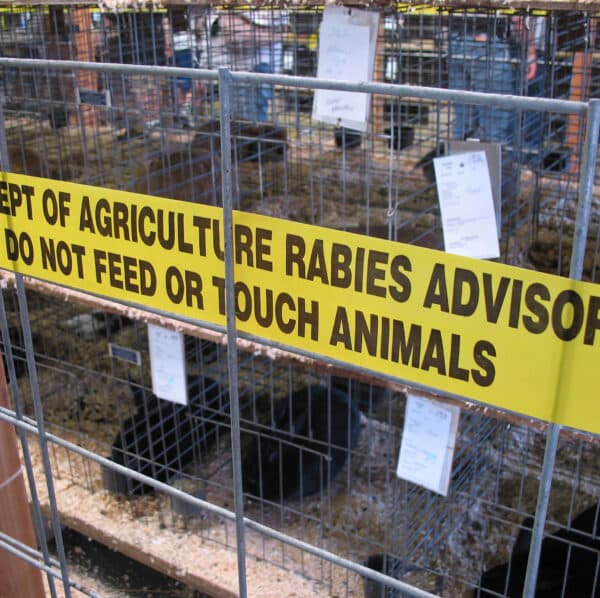














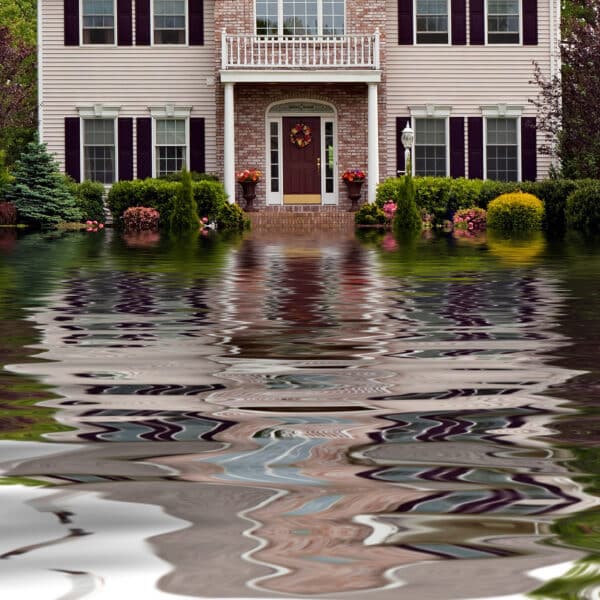










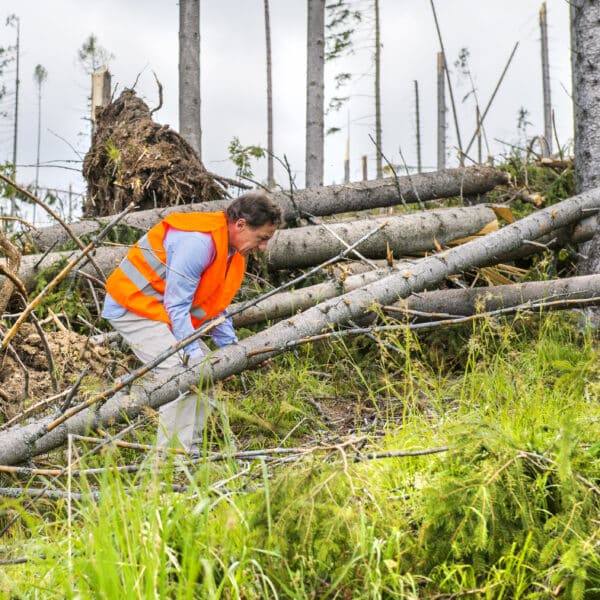



































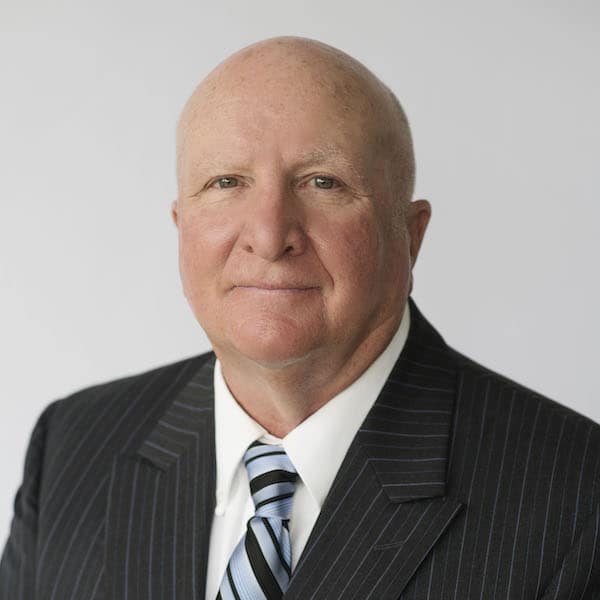

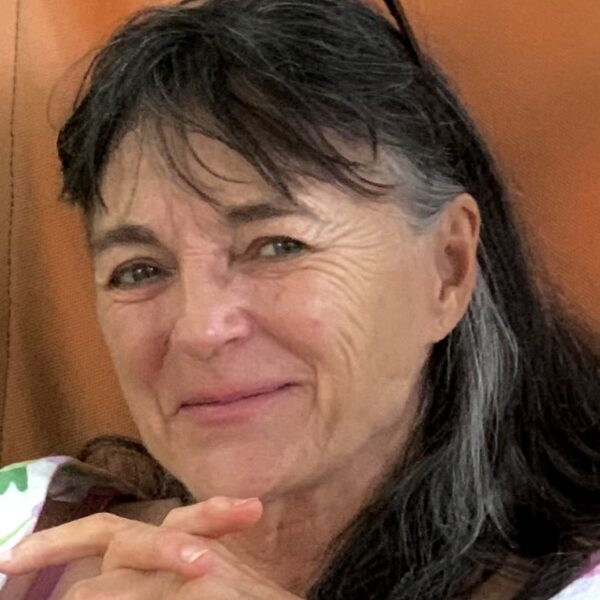



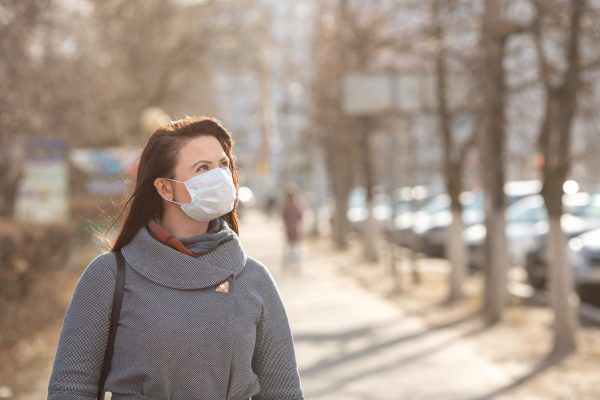












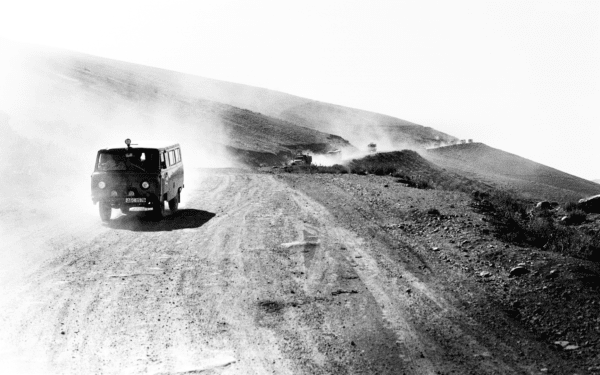



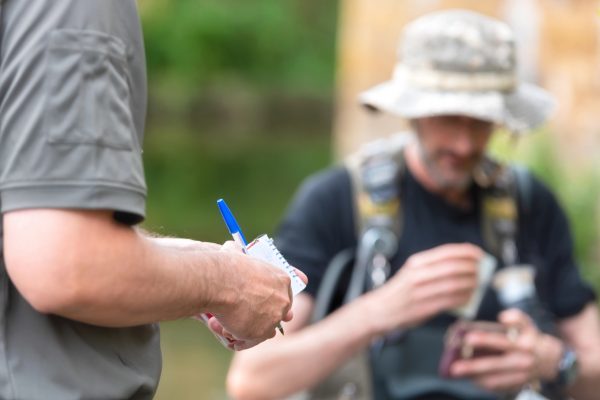
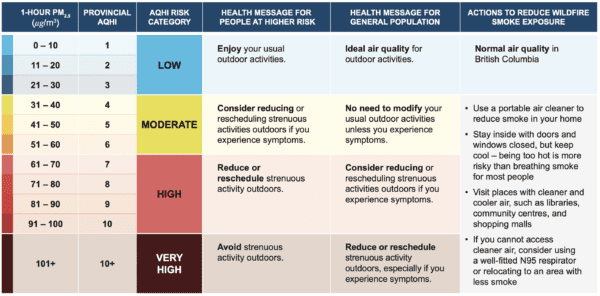






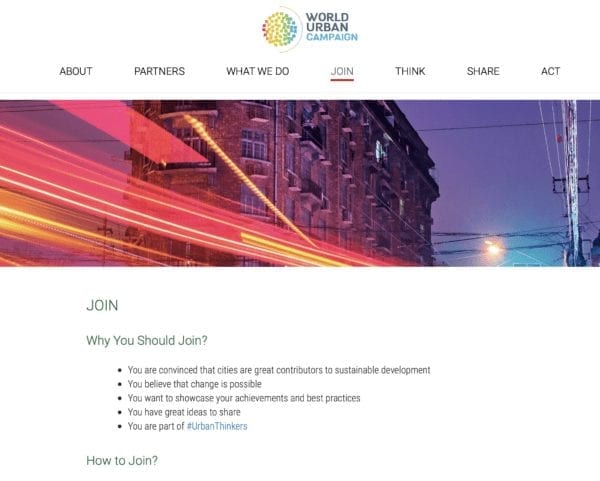


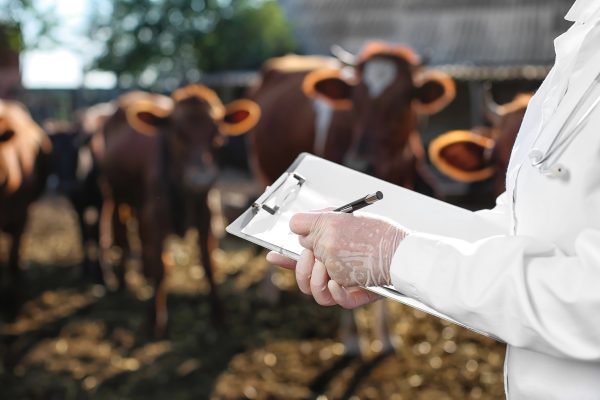



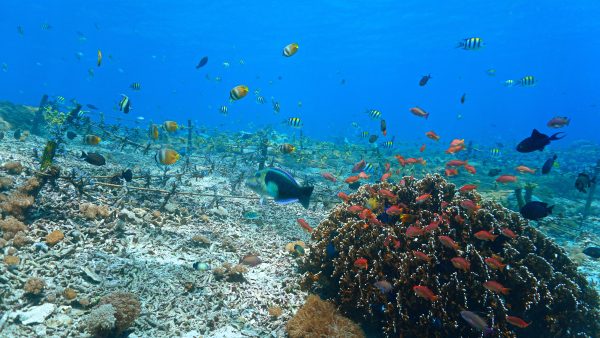











 Picture a factory. It is a contained yet complex environment—a web of processes, people, assets, and responsibilities. And like any system, it comes with a constellation of risks.
Picture a factory. It is a contained yet complex environment—a web of processes, people, assets, and responsibilities. And like any system, it comes with a constellation of risks.


